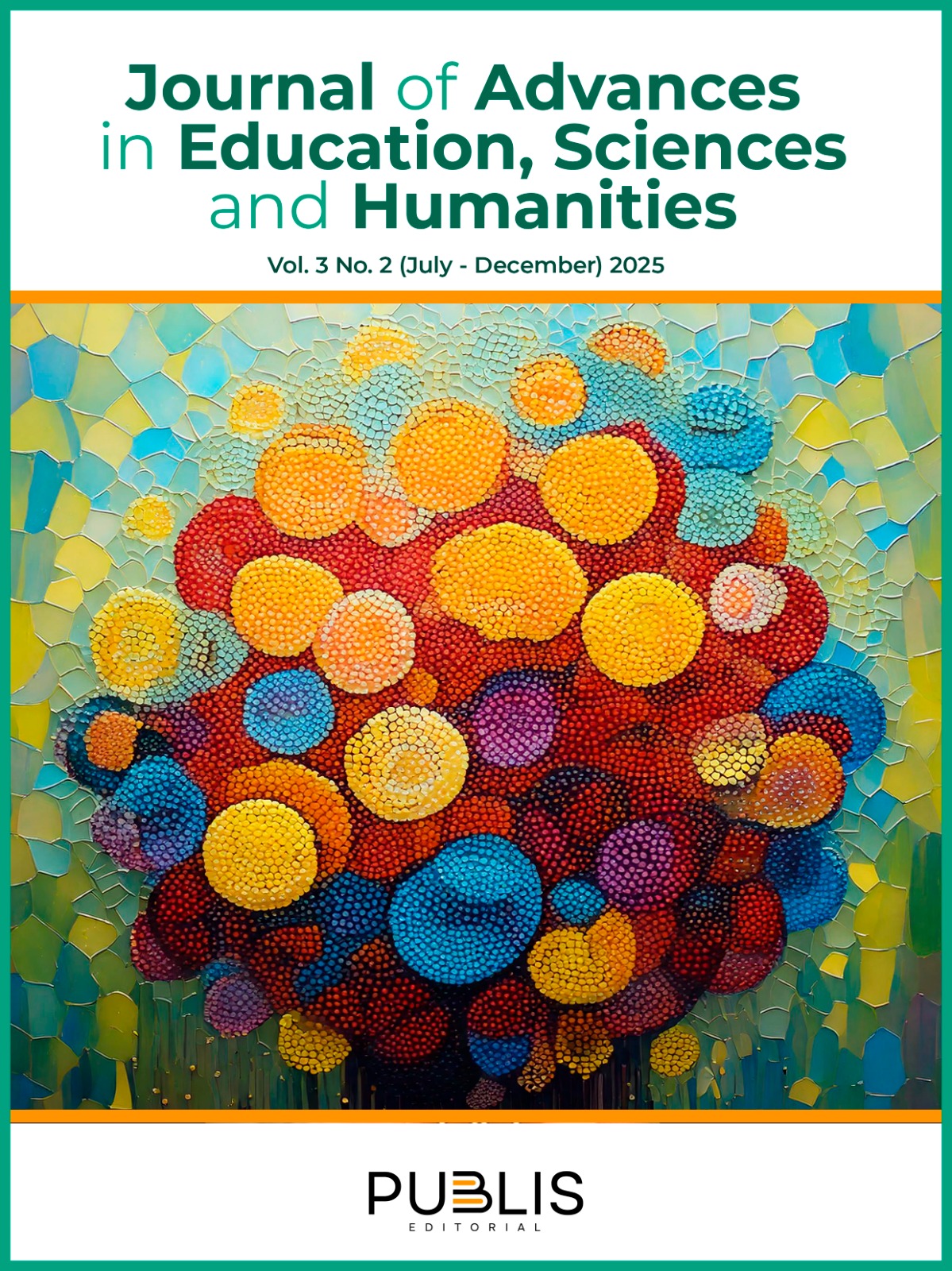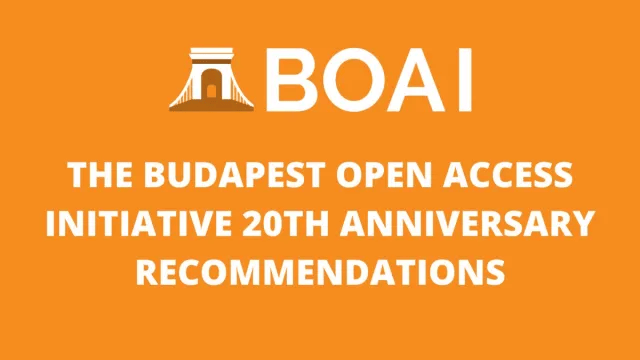Gamificación en el aprendizaje de estudiantes de Ciencias de la Salud: una revisión sistemática
DOI:
https://doi.org/10.5281/zenodo.16666114Palabras clave:
gamificación, educación médica, tecnologías de la información y la comunicación, estrategias de aprendizaje, motivación estudiantil, aprendizaje activoResumen
Se realizó una revisión sistemática siguiendo la declaración PRISMA con el objetivo de analizar el impacto de la gamificación en la enseñanza de las Ciencias de la Salud. Se consultaron bases de datos como PubMed, Scopus y Web of Science, incluyendo estudios publicados entre 2015 y 2025 que evaluaran el efecto de la gamificación en estudiantes de esta área. Tras aplicar criterios de inclusión y exclusión, y evaluar la calidad metodológica mediante la escala Newcastle-Ottawa, se seleccionaron 27 estudios. El 80 % de ellos reportó mejoras en la retención del conocimiento, motivación y participación estudiantil. No obstante, se evidenció heterogeneidad en los tipos de juegos empleados y los métodos de evaluación. En conclusión, la gamificación muestra ser una estrategia pedagógica efectiva, aunque su impacto depende del diseño y la integración curricular. Se recomienda realizar más investigaciones longitudinales para valorar sus efectos sostenidos en el tiempo.
Descargas
Referencias
Al-Balas, M., Al-Balas, H. I., Jaber, H. M., Obeidat, K., & Al-Balas, B. (2020). Distance learning in clinical medical education amid COVID-19 pandemic: A focus on simulation-based medical education. Med Ed Publish, 9, 73. https://doi.org/10.15694/mep.2020.000073.1
Almeida, R., Sousa, M. J., & Durao, N. (2021). Serious game in oral histology education: Effect on students' knowledge and engagement. European Journal of Dental Education, 25(1), 90–96. https://doi.org/10.1111/eje.12569
Alonso-Sánchez, J. A., Alonso, J. L., & Santana-Monagas, E. (2025). Gamification in Higher Education: A Case Study in Educational Sciences. Tech Trends, 69, 507–518. https://doi.org/10.1007/s11528-025-01056-2
Alvarez, L., Figueroa, K., & Bernal, J. (2020). Role-playing and collaborative learning in dental education. Journal of Dental Education, 84(9), 1032–1040. https://doi.org/10.1002/jdd.12234
Badash, I., Burtt, K., Solorzano, C. A., & Carey, J. N. (2016). Innovations in surgery simulation: A review of past, current and future techniques. Annals of Translational Medicine, 4(23), 453. https://doi.org/10.21037/atm.2016.12.24
Cayaban, A. R. R. (2022). Gamification in Nursing Education: A Systematic Review. Nurse Education Today, 112, 105308. https://doi.org/10.1016/j.nedt.2022.105308
Chon, S. H., Hilgers, S., Timmermann, F., Dratsch, T., Plum, P. S., Berlth, F., & Lang, H. (2021). Serious games for training medical students in clinical scenarios: A virtual emergency department as a tool for teaching clinical reasoning. BMJ Open, 11(3), e041711. https://doi.org/10.1136/bmjopen-2020-041711
Christopoulos, A., & Mystakidis, S. (2023). Gamification in Education. Encyclopedia, 3(4), 1223–1243. https://doi.org/10.3390/encyclopedia3040089
Cigdem, H., Ozturk, M., Karabacak, Y., & et al. (2024). Unlocking student engagement and achievement: The impact of leaderboard gamification in online formative assessment for engineering education. Education and Information Technologies, 29, 24835–24860. https://doi.org/10.1007/s10639-024-12845-2
Cook, D. A., & Triola, M. M. (2009). Virtual patients: A critical literature review and proposed next steps. Medical Education, 43(4), 303–311. https://doi.org/10.1111/j.1365-2923.2008.03286.x
Cook, D. A., Hatala, R., Brydges, R., Zendejas, B., Szostek, J. H., Wang, A. T., & Hamstra, S. J. (2011). Technology-enhanced simulation for health professions education: A systematic review and meta-analysis. JAMA, 306(9), 978–988. https://doi.org/10.1001/jama.2011.1234
da Silva, A. G., Amorim, T. C., & dos Santos, R. M. (2022). Gamification in physical therapy: A scoping review. BMC Musculoskeletal Disorders, 23(1), 678. https://doi.org/10.1186/s12891-022-05602-1
Gentry, S. V., Gauthier, A., Ehrstrom, B. L., Wortley, D., Lilienthal, A., Car, L. T., & Car, J. (2019). Serious gaming and gamification education in health professions: Systematic review. Journal of Medical Internet Research, 21(3), e12994. https://doi.org/10.2196/12994
Gutiérrez-Puertas, L., Gutiérrez-Puertas, V., & Márquez-Hernández, V. V. (2021). Instagram as a teaching tool in nursing education: A pilot study. Nurse Education Today, 103, 104943. https://doi.org/10.1016/j.nedt.2021.104943
He, C., Wu, H., Zhai, Z., & Zhu, Y. (2023). Gamification in nursing disaster education: A systematic review. Nurse Education Today, 117, 105558. https://doi.org/10.1016/j.nedt.2022.105558
Ismail, M. A. A., Ahmad, A., Mohammad, J. A. M., & Fakri, N. M. R. M. (2019). Using Kahoot! as a formative assessment tool in medical education: A systematic review. Research and Reviews: Journal of Educational Studies, 5(2), 1–6. https://doi.org/10.1186/s12909-019-1658-z
Khoshnoodifar, M., Ashouri, A., & Taheri, M. (2023). Effectiveness of gamification in enhancing learning and attitudes: A study of statistics education for health school students. Journal of Advances in Medical Education & Professionalism, 11(4), 230–239. https://doi.org/10.30476/JAMP.2023.98953.1817
Koivisto, J., Haavisto, E., Niemi, H., Katajisto, J., & Multisilta, J. (2016). Elements explaining learning and motivation in gamification experiences. Journal of Nursing Education and Practice, 6(1), 22–29. https://doi.org/10.5430/jnep.v6n1p22
Kyaw, B. M., Posadzki, P., Paddock, S., Car, J., Campbell, J., & Tudor Car, L. (2019). Effectiveness of digital education on communication skills among medical students: Systematic review and meta-analysis. Journal of Medical Internet Research, 21(8), e12967. https://doi.org/10.2196/12967
Lampropoulos, G., & Sidiropoulos, A. (2024). Impact of gamification on students’ learning outcomes and academic performance: A longitudinal study comparing online, traditional, and gamified learning. Education Sciences, 14(4), 367. https://doi.org/10.3390/educsci14040367
Lee, C. Y., Lee, C. H., Lai, H. Y., Chen, P. J., Chen, M. M., & Yau, S. Y. (2025). Emerging trends in gamification for clinical reasoning education: A scoping review. BMC Medical Education, 25(1), 435. https://doi.org/10.1186/s12909-025-07044-7
Li, Y., Zhang, D., Wu, H., & Du, X. (2021). The effect of a serious game on learning performance and motivation in oral pathology education. BMC Medical Education, 21(1), 11. https://doi.org/10.1186/s12909-020-02456-y
Lioce, L., Meakim, C., Fey, M. K., Chmil, J. V., Mariani, B., & Alinier, G. (2020). Standards of best practice: Simulation standard IX: Simulation design. Clinical Simulation in Nursing, 13(12), 681–687. https://doi.org/10.1016/j.ecns.2017.10.009
Miller, M. D., & Hutton, A. (2021). Gamification in rehabilitation education: A review. Physiotherapy Theory and Practice, 37(6), 703–709. https://doi.org/10.1080/09593985.2019.1632096
Moro, C., Štromberga, Z., Raikos, A., & Stirling, A. (2017). The effectiveness of virtual and augmented reality in health sciences and medical anatomy. Anatomical Sciences Education, 10(6), 549–559. https://doi.org/10.1002/ase.1696
Papadopoulos, C., & Koulouglioti, C. (2022). Gamification in mental health education: A review. Health Education Research, 37(2), 155–167. https://doi.org/10.1093/her/cyac005
Ponce, B. A., Jennings, J. K., Clay, T. B., May, M. B., Huisingh, C., & Sheppard, E. D. (2014). Virtual reality and augmented reality in orthopedic surgery. The Journal of the American Academy of Orthopaedic Surgeons, 22(12), 745–751. https://doi.org/10.5435/JAAOS-22-12-745
Queiro-Ameijeiras, C. M., Seguí-Mas, E., & Martí-Parreño, J. (2025). Determinantes de la aceptación de la gamificación en la educación superior: Un modelo empírico. RIED-Revista Iberoamericana de Educación a Distancia, 28(1), 127–155. https://doi.org/10.5944/ried.28.1.41565
Salazar, F. S. (2024). El impulso de la gamificación mediante las TIC en una comunidad virtual de aprendizaje. VOX JURIS, 42(2). https://orcid.org/0000-0002-5701-0467
Seymour, N. E., Gallagher, A. G., Roman, S. A., O’Brien, M. K., Bansal, V. K., Andersen, D. K., & Satava, R. M. (2002). Virtual reality training improves operating room performance: Results of a randomized, double-blinded study. Annals of Surgery, 236(4), 458–464. https://doi.org/10.1097/00000658-200210000-00008
Smiderle, R., Rigo, S. J., Marques, L. B., & et al. (2020). The impact of gamification on students’ learning, engagement and behavior based on their personality traits. Smart Learning Environments,7, 3. https://doi.org/10.1186/s40561-019-0098-x
Tulloh, M. L., & Deakin, C. D. (2020). Gamification in critical care education: A randomised controlled trial. BMJ Simulation and Technology Enhanced Learning, 6(1), 38–44. https://doi.org/10.1136/bmjstel-2019-000509
Vera, M., & Arcos, J. (2022). Kahoot! and cooperative learning in physiotherapy education. BMC Medical Education, 22, 489. https://doi.org/10.1186/s12909-022-03639-7
Wang, A. I. (2021). The wear-out effect of a game-based student response system Computers & Education, 159, 104023. https://doi.org/10.1016/j.compedu.2020.104023
Publicado
Declaración de disponibilidad de datos
Los conjuntos de datos utilizados y/o analizados durante el presente estudio están disponibles del autor correspondiente previa solicitud razonable.
Número
Sección
Licencia
Derechos de autor 2025 Jorge A. Fernández (Author)

Esta obra está bajo una licencia internacional Creative Commons Atribución-NoComercial-CompartirIgual 4.0.




































